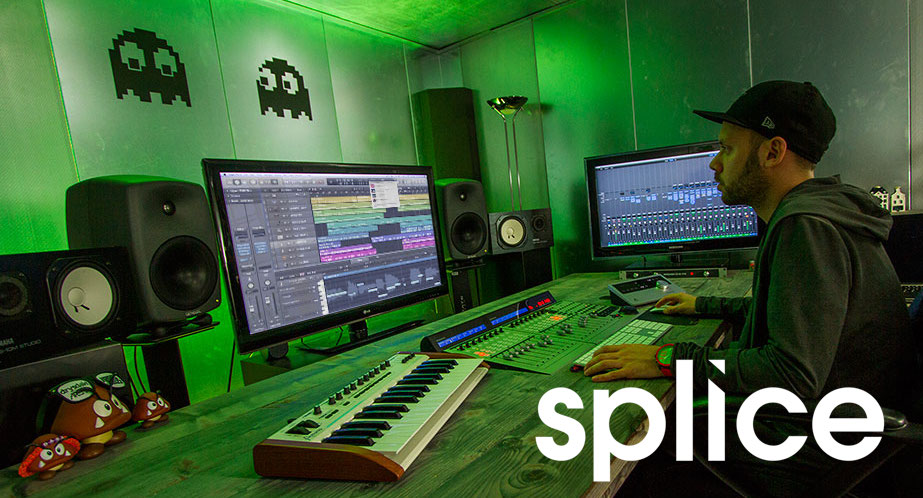How Much Does The Average Music Producer Make
Home Entertainment News Hollywood Salaries: 70 Jobs and How Much You Can Make in the. Entertainment News. The average SAG actor makes $52,000 a year, while a large majority of actors earn less than $1,000 a year from acting jobs. PRODUCER $250k – $2M. Pavel L Photo and Video / Shutterstock.com. STUDIO CHIEF $5M-$15M. Music Producer Job Description: The first step is to listen to the band’s material and pick the best songs. During this phase, you’re looking for both commercial tracks (the elusive “hit.
Music Producer Salary Los Angeles
To help make that easier to pay for the artists, most producer contracts specify something called 'retroactive to record one,' meaning the artist does not owe the producer any royalties until they (or often, their label) recoups their recording costs. However, once the costs are recouped, the producer is owed royalties on everything sold going.
“Okay, This is a touchy subject because the term ‘Music Producer’ has become very distorted in the last few years by the advent of the digital music creation stations, Logic, Fruity Loops, Reason, Ablteon Live, Pro Tools, etc. A music producer is the guy that is in charge of making your song sound the way he thinks your song should sound to be competitive in the market that your song will be in. A guy who makes beats on his laptop with FL studio is a beat maker.“The music producer should be the guy that picks the studio and the engineer to work on your song from his experience of having worked on similar songs with the same guys. The music producer is hired because of his ideas in your genre of music. Then there are also vocal producers. Those guys can take your vocals and make you sing the way they know you can, and the way the song needs for you to sing.
Then, they usually work with a mix guy that they trust to put the vocals together in the way the songs needs in order to be the best it can be. Beat makers take samples and put them together with other samples to make a ‘song’ They are not music producers. “Today’s music producer is handling every role that we had 5 different guys handling 10 years ago. They are engineering and mixing as they are writing the songs. They’re playing the instruments, choosing the co-writers, supplying the studios. They even balance the finances of project.

Many of today’s producers have even absorbed the A&R roles that historically fell on the shoulders of the record label. He’s finding the artists, spending the development time nurturing them, and then bringing them into the label on a silver platter.”. We don’t take everyone. In fact, we only take about 1 in 20 applicants. Take our 60 second survey and see if you have what it takes.Here's the academic 'book report' answer:Music producers are often defined as the unsung heroes behind the scenes in popular music. In recording a song, or making a record, the music producer serves much the same role as a director in a film.It is the music producer’s job to make sure that in the end the finished product is as good as it can be.
In some cases this may merely involve making it listenable, however in other cases this means making sure the song is a hit, or at least has the potential to be a hit.A music producer's job can be as passive as sitting on the couch listening and nodding approval and as active as running a soundboard and helping to place microphones in drum sets, or even participate as a musician on some tracks.A music producer's job is essentially to make sure that a song is well recorded and well produced.If the band and the studio are good and the sound engineer knows his job, this may not be too hard. However if the band struggles and the engineer has technical problems, a music producers job can get more complicated.There is no simple answer to the question, what does a music producer do? If the band or the singers aren't getting their parts right, a music producer must get involved. It can be the producer's job to help the singers get their parts right or to make sure the engineer has placed the microphones the right distance from a guitar amplifier.Good music producers understand every aspect of studio production. They also have a very good ear and a well-rounded knowledge of how voices and instruments produce recordable sound.One can learn to be a music producer by attending recording or music school.
However recording school is not for everyone. It can be cost-prohibitive for some and too academic for others.Mentoring programs, such as those offered by the Recording Connection, offer many advantages for those who wish to learn to be music producers. In a mentoring program one learns the skills of music production while working in a real professional recording studio under the tutelage of real, recording professionals.


There is no substitute for this kind of practical experience.With a mentorship program, you learn the skills of professional music production in a real studio, from real pros.And unlike recording schools, mentoring programs often give participants the chance to make their own hours. This is great news for anyone who needs to work a day job while pursuing his or her dreams.If you've wanted to know what a does and are now interested in pursuing it as a career, you should consider a mentorship program. One key thing you can gain from a mentorship that you can't from recording school is contacts.
Because in the music business, who you know can be just as important as what you know. What is your area of interest?